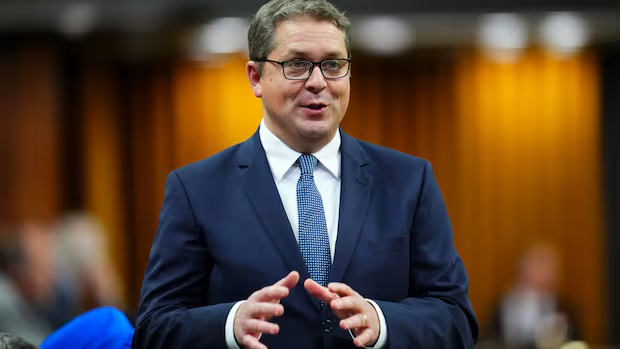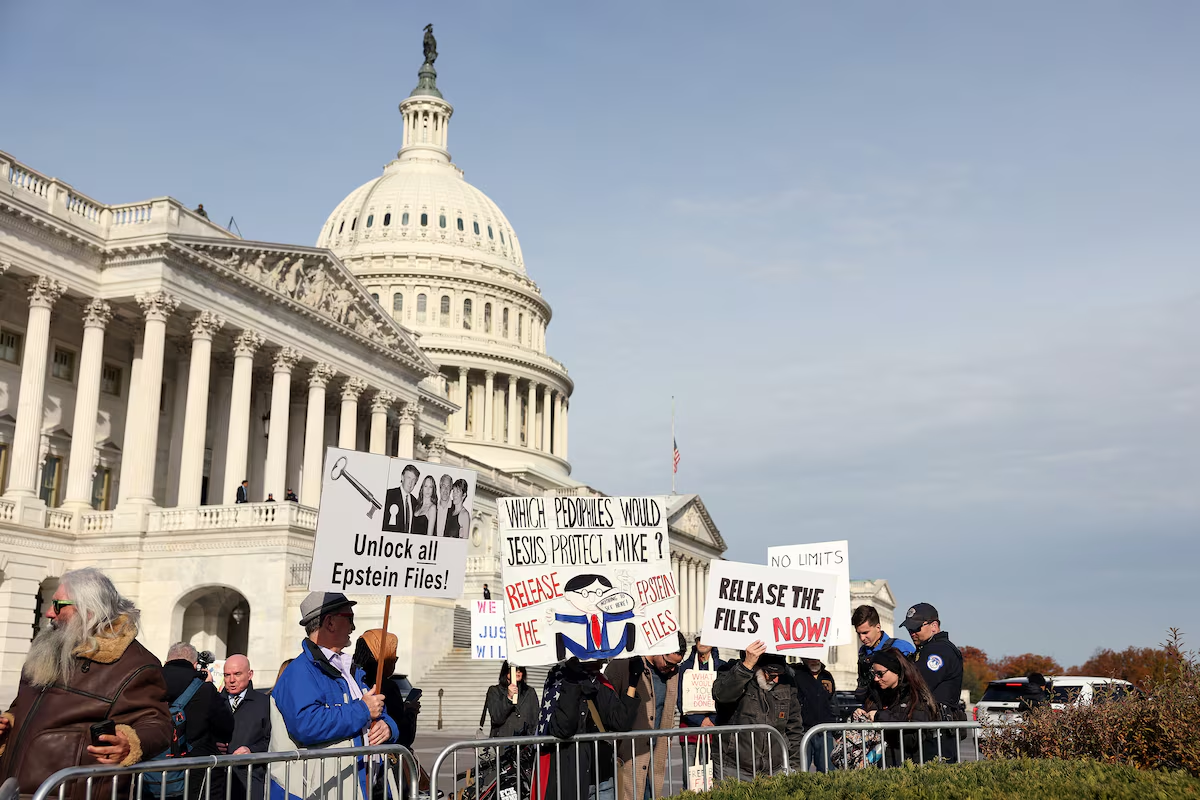In damage control after 2 departures, Conservatives accuse Liberals of ‘undemocratic’ distractions

Listen to this article
Estimated 5 minutes
The audio version of this article is generated by text-to-speech, a technology based on artificial intelligence.
Conservative House leader Andrew Scheer held a brief media availability Friday morning in an attempt to redirect attention from the Official Opposition’s internal crisis to the Liberal Party.
Instead, the senior Conservative was pelted with questions about Edmonton Riverbend MP Matt Jeneroux’s surprise decision to quit federal politics six months after an election. The move came two days after former Conservative MP Chris d’Entremont defected to the Liberals.
According to a senior Liberal source, Jeneroux met with Prime Minister Mark Carney this week.
“I guarantee you if you stop 100 people on any street in this country they are not interested in palace intrigue,” said Scheer, not long before walking off-mic after four minutes of questions.
WATCH | Scheer says Liberals are pressuring Conservatives:
Resigning Conservative MP is victim of Liberal ‘pressure tactics,’ Scheer says
House leader of the Opposition Andrew Scheer says the most recent MP to announce his departure from the Conservative caucus, Matt Jeneroux, is ‘the victim’ of Liberal intimidation which pushed him to resign earlier than planned.
“We’re not going to let Liberal sources distract from the budget.”
Political circles have very much been sent into a frenzy about what’s going on inside the Conservative Party and what shifting support could mean for Carney’s government to get bills, like the budget, passed through Parliament.
Budget week is usually a communications gold mine for opposition parties — especially when the government’s spending plan includes a $78-billion deficit. But the Conservatives have been knocked off message.
- Cross Country Checkup is asking: Is there anything wrong with floor crossing? How important is party loyalty to you? Leave your comment here and we may read it or call you back for our show this Sunday.
The same night Jeneroux announced he was leaving, the Conservatives’ first attempt to bring down Carney’s budget (through an amendment confidence vote) failed. A handful of Conservatives abstained.
Leader Pierre Poilievre has not held any public news conferences or scrummed with reporters and is now facing questions about his leadership and influence over his caucus.
WATCH | Is Poilievre’s leadership at risk?:
At Issue | Is Pierre Poilievre’s leadership in trouble?
At Issue this week: Questions surface about Pierre Poilievre’s leadership after one Conservative MP crosses the floor and another resigns. Prime Minister Mark Carney looks for the votes to support his federal budget. And Canada’s plan to slash immigration levels.
After crossing the floor, d’Entremont said he was disaffected with Poilievre’s leadership style and that some of his former caucus mates “are in the same boat.”
Conservative sources said Jeneroux was under pressure to stay on from some in the party. But in a statement Thursday, Jeneroux said coercion played no role in his decision.
Scheer accuses Carney of being ‘undemocratic’
Former Conservative campaign manager Jenni Byrne, who is still an adviser to the party, has been involved in the party’s efforts to quash possible floor-crossings, the sources said.
Scheer accused the Liberals of being the ones harassing Conservatives, speeding up Jeneroux’s decision to leave.
“The only rumours I’ve heard of intimidation and harassment are from Liberals badgering Conservatives in elevators and calling them at home,” Scheer said.
“All of this is an attempt to distract from Mark Carney’s first budget, a terrible budget that is almost universally panned.”
WATCH | Why are politicians allowed to switch parties?:
Why are politicians allowed to switch parties?
Crossing the floor: traitorous or brave? CBC’s Catharine Tunney explains why politicians are able to make the jump.
Asked whether Jeneroux can stay in Conservative caucus given his meeting with Carney, Scheer said he does “not take unnamed Liberal sources at their word.”
“Mark Carney did not receive a majority mandate from Canadian voters. Yet he’s trying to cobble together a majority through undemocratic means with backroom deals and pressure tactics,” Scheer said.
There are no rules preventing floor-crossing in Canada, although it is a deeply divisive issue. The Parliament of Canada Act makes no mention of it and the House of Commons Procedure and Practice guide notes that “members are not obliged to retain that party label during the whole of their mandate.”
WATCH | Liberals being ‘undemocratic,’ says Scheer:
Scheer accuses Liberals of taking ‘undemocratic’ actions to get a majority
Opposition House leader Andrew Scheer accuses Liberals of using intimidation tactics to increase their seat count in the House of Commons. This comes after MP Matt Jeneroux announced his resignation Thursday and just days after former Conservative MP Chris d’Entremont crossed the floor.
In the early 2000s the federal ethics commissioner, Bernard Shapiro, cleared David Emerson, who jumped to the Conservatives just two weeks after winning his B.C. riding as a Liberal. Shapiro found no wrongdoing, but did urge Parliament to debate the ethics of floor-crossing.
“Fairly or unfairly, this particular instance has given many citizens a sense that their vote — the cornerstone of our democratic system — was somehow devalued, if not betrayed,” he wrote.
Both Liberals and Conservatives have enjoyed, and decried, when MPs switch affiliations.
In 2018, when he was the party’s leader, Scheer posed with Leona Alleslev after she jumped from the Liberals to join the Conservative benches, calling out Prime Minister Justin Trudeau’s leadership along the way.
Carney’s post-budget tour took him to the Canadian Club in Toronto on Friday, where he was asked how many more seats he needed for a majority.
“Just a couple. So call your local MP if they’re not a Liberal,” he told the business-oriented crowd.
Tuesday’s budget shows a deficit of roughly $78 billion. It includes some $141 billion in new spending over the next five years, which will partially be offset by some $51.2 billion in cuts or a total of $60 billion in cuts and “savings.”





